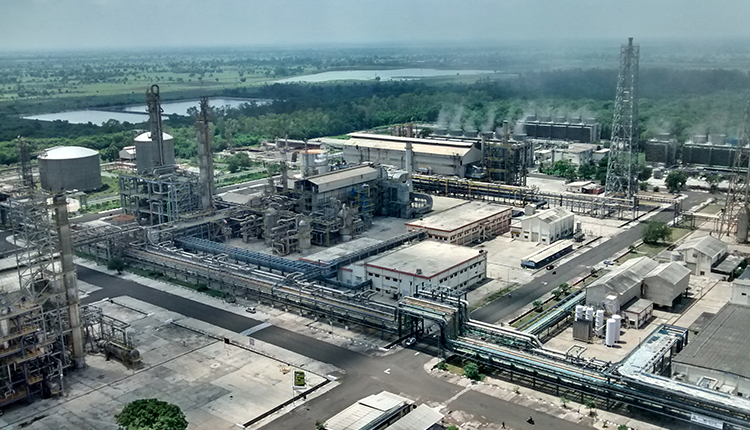Employees at Egyptian Refining Company (ERC) reflect on the path that led him to achieve his professional and personal goals and on how the company unlocks industrial potential and uplifts communities through CSR.
Eyes glued to screens and flashing lights in the control room, Mohamed Said Amer, a 32-year-old operations field engineer at the Egyptian Refining Company (ERC), a greenfield petroleum refinery, reflects on the path that led him to achieve his professional and personal goals.
“I have witnessed this impressive industrial project being built from the ground up. I have seen ERC come to life and I’ve been fortunate enough to hold positions with Petrojet, the subcontractor for the project, Korea’s GS Engineering & Construction Corporation, the construction company on the project, and finally with EPROM, the operating company that runs the refinery.”
Mohamed has done all this since graduating from Assuit University’s Faculty of Engineering in 2012.
In operation 24 hours a day, every day of the year, ERC, which is a subsidiary of Qalaa Holdings, stands on 350,000 square meters of land in Mostorod, in Qalyoubia governorate, 40 km from central Cairo.
ERC was born from a desire to ease reliance on imports and to produce cleaner fuels, a cornerstone of Egypt’s energy security policy. Today it is one of the largest industrial units of its kind in Africa.
“I can truly say that every day at ERC, I have learned something new. The knowledge transfer that we received working alongside Dutch, Korean, French, Serbian and American engineers and technicians during the different phases of the project lifecycle has helped me to learn and translate my academic skills into practical knowledge, and I in turn have passed those skills on to others,” said Mohamed, who sees no need to emigrate in order to achieve his dreams.
With a production capacity of 4.7 million tons of refined products and high-quality oil derivatives per year, the refinery has helped reduce imports and reducing the country’s balance of payments deficit. With nearly $222 million in funding from the African Development Bank, the project meets Egypt’s growing demand for refined petroleum products.
“From the outset, we knew that we would need to call not just on our own financial resources, but on a deep network of international investors, banks and guarantors to transform a $4.4 billion megaproject into a reality,” said Ahmed Heikal, chairman and founder of Qalaa Holdings. “From day one they were able to see that this project, which has been 12 years in the making, was going to have a transformative effect on Egypt’s economy” added Ahmed Heikal.
ERC today enables the conversion of lowest-value fuel into medium and light distillates that are meeting domestic consumption needs and eliminating 186,000 tons of sulphur dioxide and 96,000 tons of sulphur annually and improving the quality of the national petrol supply. It has created more than 15,000 jobs at peak construction and 1,000 permanent local job opportunities.
ERC also provides social development programs, including Takaful, a partnership with local community associations that has benefited many local residents. Ahmed Mahmoud, who is deaf, is one of them.
“I not only perform in local theater productions with my peers, I am also creating and producing my own shows for the community.” Takaful has sponsored three childcare centers, serving more than 2,000 children, and provided assistance to over 5,400 individuals with special needs.
The refinery also works to boost the local economy. Through Tamkeen, a women’s economic empowerment program financed by ERC, young entrepreneur Amal Mohsen has launched her own business. Tamkeen has sponsored hundreds of small projects for local women and set up four employment centers to link 30,000 local youths to the job market.
“Tamkeen helped me to open my own beauty salon and as a result I have been able to financially support myself and my family,” said Amal, who has since married and had kids. Her business now employs two people.
From the start the project has made a difference, said Aliaa Heikal, deputy chief financial officer of ERC. “We have been planning, working, and talking about the transformative nature of this project for years. Since the start of operations in early 2019, ERC has effectively reduced imports, made a positive environmental impact and created thousands of jobs,” Aliaa said.
“We are also proud that our initiatives in education, economic empowerment, youth capacity building and special needs programs have been making a positive social impact on the surrounding community in Mostorod.”


